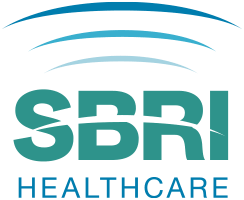In collaboration with the Stroke Association and the AHSN Network, SBRI Healthcare has announced that Competition 18 – Stroke & Technology will be launched on Tuesday 13th July 2021.
The SBRI Healthcare funding competition, offering grants to cover 100% of project costs to a maximum of £100k in phase 1, is open to small and medium sized enterprises (SMEs) and organisations from the private, public and third sectors, including charities.
NIHR Devices for Dignity MIC (D4D) is a national organisation established to catalyse technology innovation to support people with long-term conditions to live with dignity and independence.
D4D is interested in developing collaborative bids with SMEs in response to the SBRI Healthcare competition within the specific challenge themes of:
- Rehabilitation
- Life after stroke
D4D is particularly interested in technology solutions that consider one or more of the following:
- Augment delivery of rehabilitation interventions that provide integrated feedback to patients
- Provide effective home/community-based rehabilitation that meets the needs of specific groups of people following a stroke (for example specific needs for some communities, young people, stroke severities and those with multiple health conditions)
- Improve communication abilities and related ‘thinking’ skills (cognitive communication disorder).
- Respond to healthcare inequalities
- Assistive technologies that could be adapted / personalised to meet user needs considering a range of aspirations, lifestyles, age groups, co-morbidities and contexts
- Addresses the importance of exercise/physical activity in recovery and risk of secondary stroke
D4D Expertise
D4D can support engagement of national clinical and patient networks, co-design best practice, product development, evaluation and clinical evidence planning, and insight into product commercialisation and market adoption – and has a significant track record in developing technologies for people who have had a stroke.
Our extensive portfolio includes technologies supporting swallowing function, detecting silent aspiration, identifying falls risk and building carer skills and confidence to support people with neurological conditions, and our collaboration with 3 SME partners, to develop a new therapy for post-stroke arm spasticity, was recently awarded NIHR i4i funding of £1.2M.
Since 2008, D4D has leveraged over £53M funding to advance technology development, engaged with over 450 organisations and brought 20 new products to market.
Our focus is collaboration and working in partnership with patients and health professionals to co-design technology solutions that meet user needs.
How to get involved
SMEs interested in collaborating are invited to get in touch via https://d4d.innovationmanager.io/enquiries/intro indicating SBRI Healthcare Stroke in the collaboration request title.
Projects need to have early stage evidence of user acceptability, usability and validity; have considered routes to market (TRL 3); and evidence a commitment for meaningful patient & public involvement and engagement (PPIE).
The opportunity for collaboration requests launches Monday 5th July 2021 with a deadline for new collaboration requests of Tuesday 3rd August 2021.
Depending on the volume of collaboration requests received, D4D reserves the right to bring this deadline forward in order to meet the SBRI Healthcare competition deadline of 24th August. In our experience it takes time to develop a quality application in a collaborative partnership and hence we would advise making contact with D4D as early as possible.
D4D cannot guarantee to support every collaboration request. Each project will be considered on its own merit, informed by recommendations from the D4D expert clinical and patient network.
To find out more about the competition scope and eligibility please visit https://sbrihealthcare.co.uk/competition/sbri-healthcare-competition-18-stroke-and-technology/
Priority technology opportunities for rehabilitation and life after stroke can also be found at the Stroke Association Stroke Priority Partnership report found here




